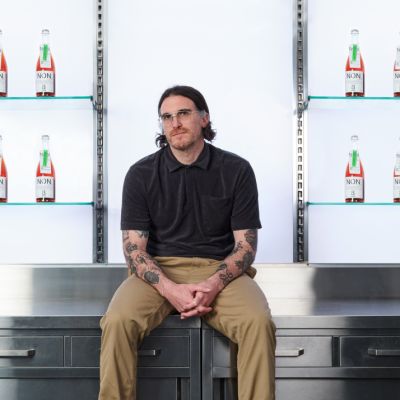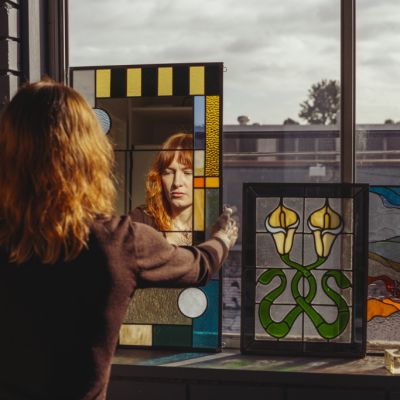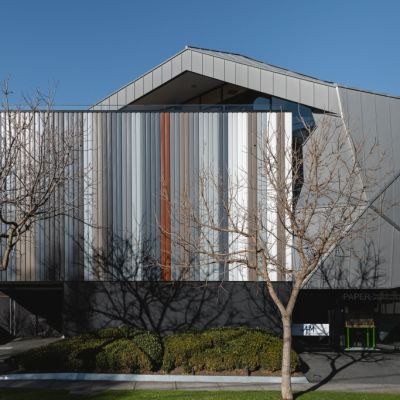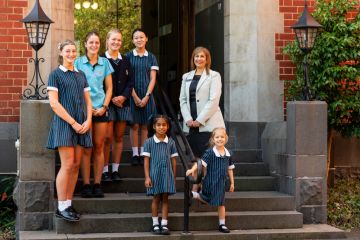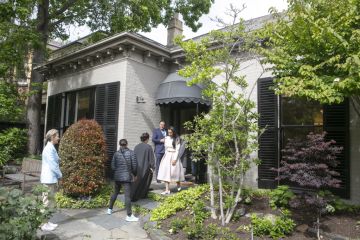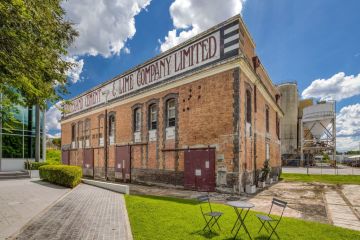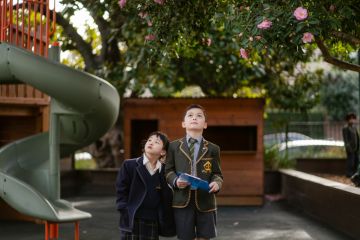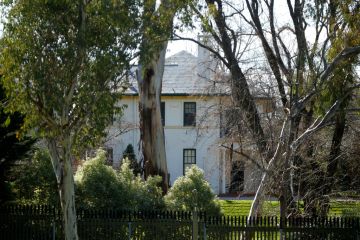ASRC founder Kon Karapanagiotidis on building cultural connections through food
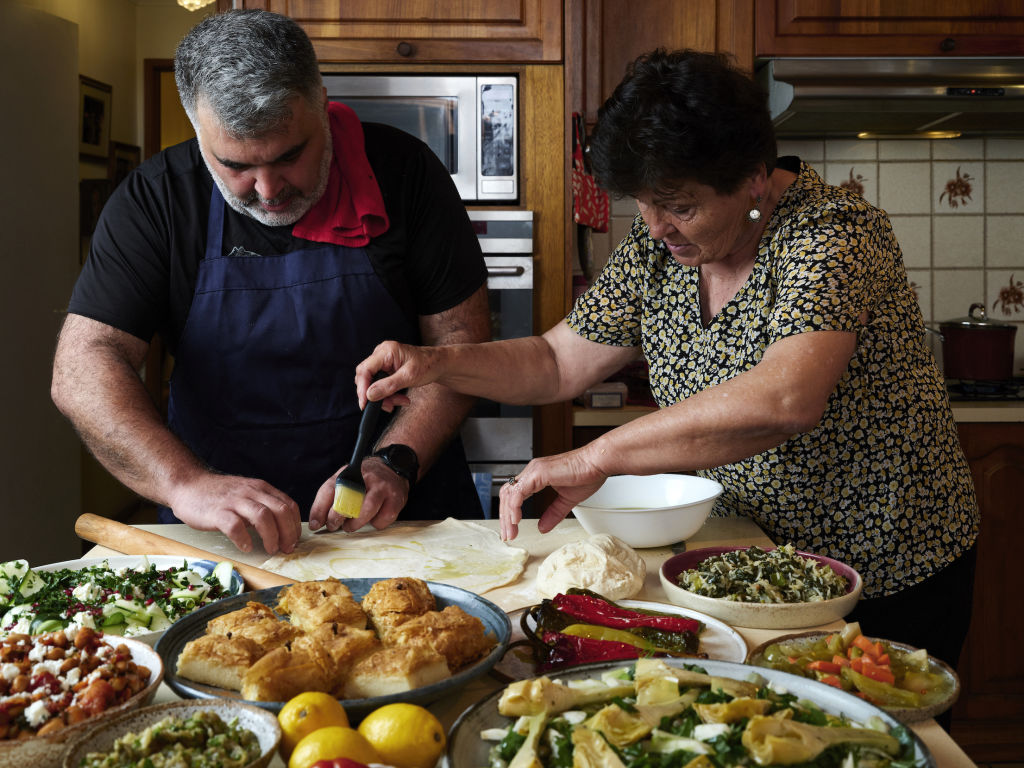
Human rights lawyer and ASRC founder Kon Karapanagiotidis’s espresso-brown eyes crinkle warmly in their corners when he’s asked to describe his mother Sia Karapanagiotidis.
“My mum is a straight talker. She respects people that are hardworking, but if you’re careless she won’t hold back,” he says.
“Sia loves her big sunglasses in summertime and comfy moccasins in wintertime. She’s filled with a fierceness of intelligence and an ability to navigate the most complex and challenging things in life. She’s incredibly salty, too – she doesn’t suffer fools.”
Kon’s admiration of Sia is clear – and understandable. She didn’t finish high school but is soon to become a published author alongside her son. The pair has spent the better part of the past 12 months co-writing Philoxenia: A Seat at My Table, the veggie-powered 100-recipe Greek cookbook soaked in family, generosity and hope.
“I wanted to capture my culture and my mum’s beautiful recipes,” Kon says. “Food is so central to my family’s life: it’s how I bonded with my mum, how I bonded with my dad.”
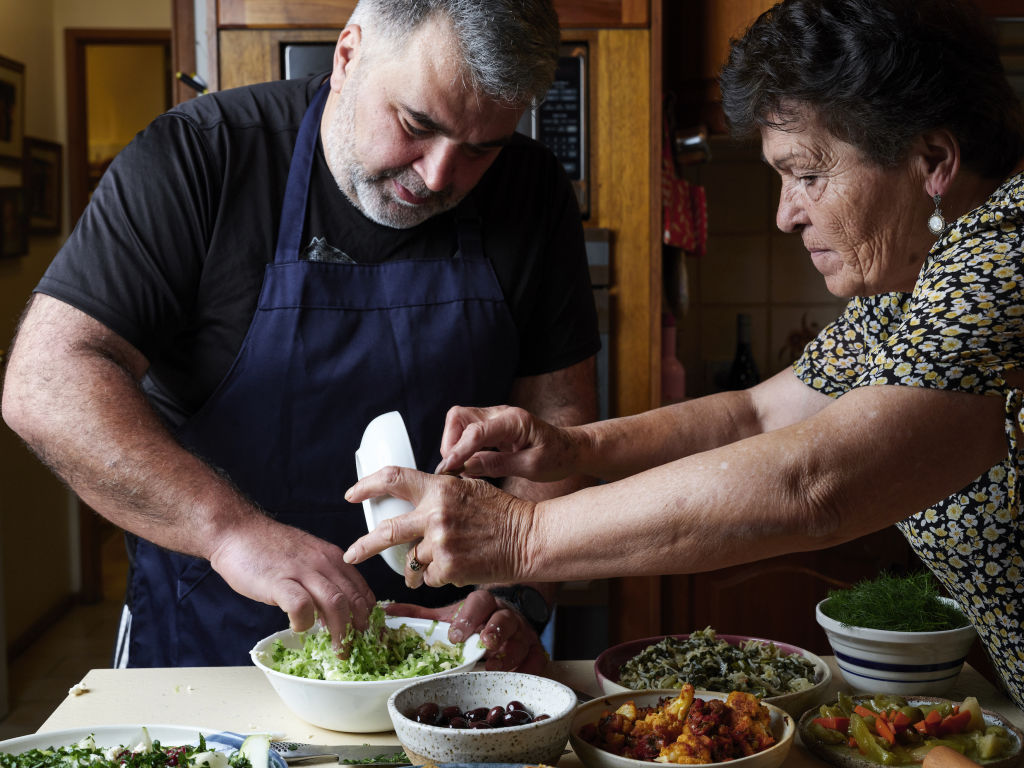
Images of his late father Leo tending to a bubbling pot of brothy, cannellini-bean-laden fasolada for hours at a time remain with Kon. Likewise those of Leo plucking juicy red tomatoes from vines in their backyard, roughly chopping the bounty, dousing it in olive oil and a generous crumble of feta, and serving with hunks of crusty bread to soak up the juicy leftover puddle.
Often away from home working, Kon’s dad always found the time to cook for his family. “It was his way of showing love. I remember the pride he took in [the tomato salad]: I grew this, I created this.”
“Philoxenia” is a Greek word meaning ‘to show generosity to a stranger’. It encapsulates the selflessness that’s energised Kon through a lifetime heaving with compassion.
Kon grew up in the rural alpine town of Mount Beauty, then inner-city Thornbury. His parents – who migrated to Australia in the ’60s – endured the racism and exclusion ever-present in the migrant experience, as did Kon. “[The self-hate] was going to eat me alive if I didn’t do something with it,” Kon says of his 18-year-old self. “I started volunteering at different charities, and I found a place that made sense. I had a lot of love to give, if not to myself.”
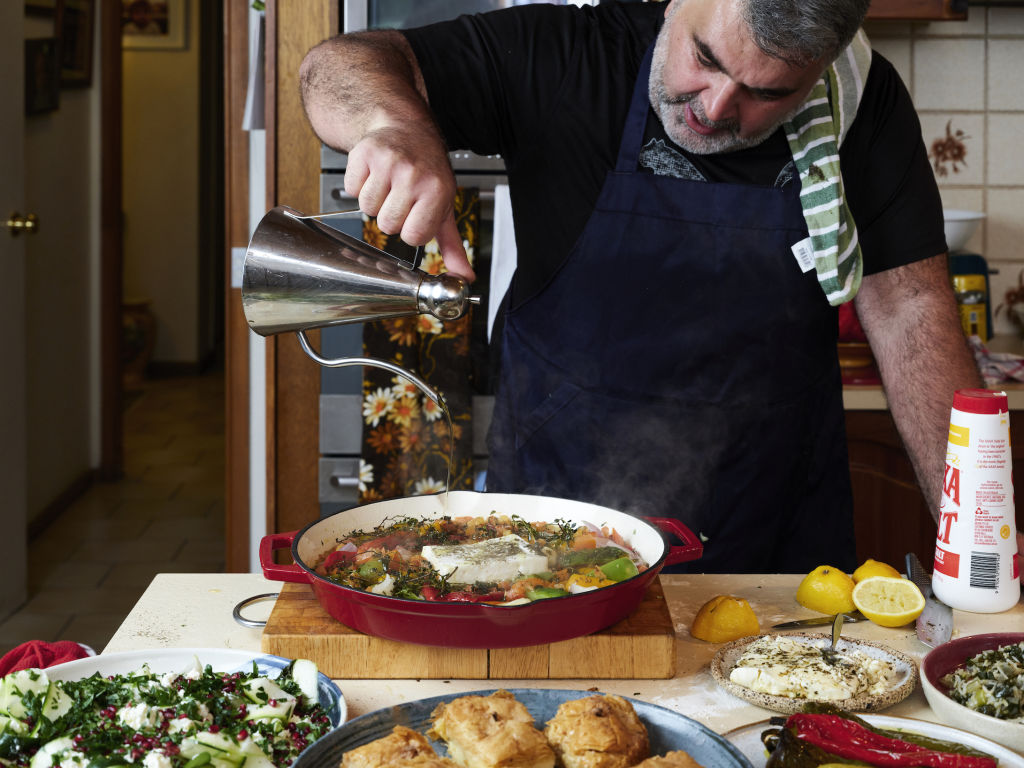
It was Sundays at the Royal Children’s Hospital, midnight shifts on a crisis line, mealtimes at a homeless men’s shelter. “I’d look at all this injustice and I felt an affinity,” he says. “I felt like I was invisible, and I felt drawn to other people that felt invisible.” After a decade immersed in communities of need – also earning degrees in education, social work and law, and working as a teacher – a determined and hopeful 28-year-old Kon founded the Asylum Seeker Resource Centre (ASRC).
For the past two decades, those seeking a safer life Down Under have been able to access a health centre, rent and utilities relief, legal support and, above all, kindness via the ASRC. Over 1000 people are fed each week via the organisation’s food bank, a free hot lunch is served daily, and there’s investment in refugee-led businesses, too.
The team worked to have the last children in immigration detention taken off the small island of Nauru, and convinced state governments to make transport concession cards accessible to asylum seekers. “At the coal face, we’ve helped over 30,000 people,” Kon says.
Through it all is the simple power of food, connecting us to culture and each other, grounding those caught in life’s flux. “I believe no matter what you have, everyone’s entitled to beautiful food. Food in itself is the social armour that refugees and migrants put on,” Kon says. “It’s how newly arrived people enable themselves to be humanised, to be accepted. If you can’t access your food, you can’t access your identity.”
At Sia’s home in Moonee Valley, the duo picks silverbeet, spring onions and tomatoes from the backyard veggie patch – once grown to plentitude by Leo. Then Kon takes sous chef position to his mother’s head chef, learning from and delighting in her skill, care and saltiness.
“The first thing my mum talks about is your intention. Cook with love. But also, cook with your senses. Add a little bit of something, you can always add more. Start at a low temperature and move on from there. Keep tasting, smelling, looking at it.”
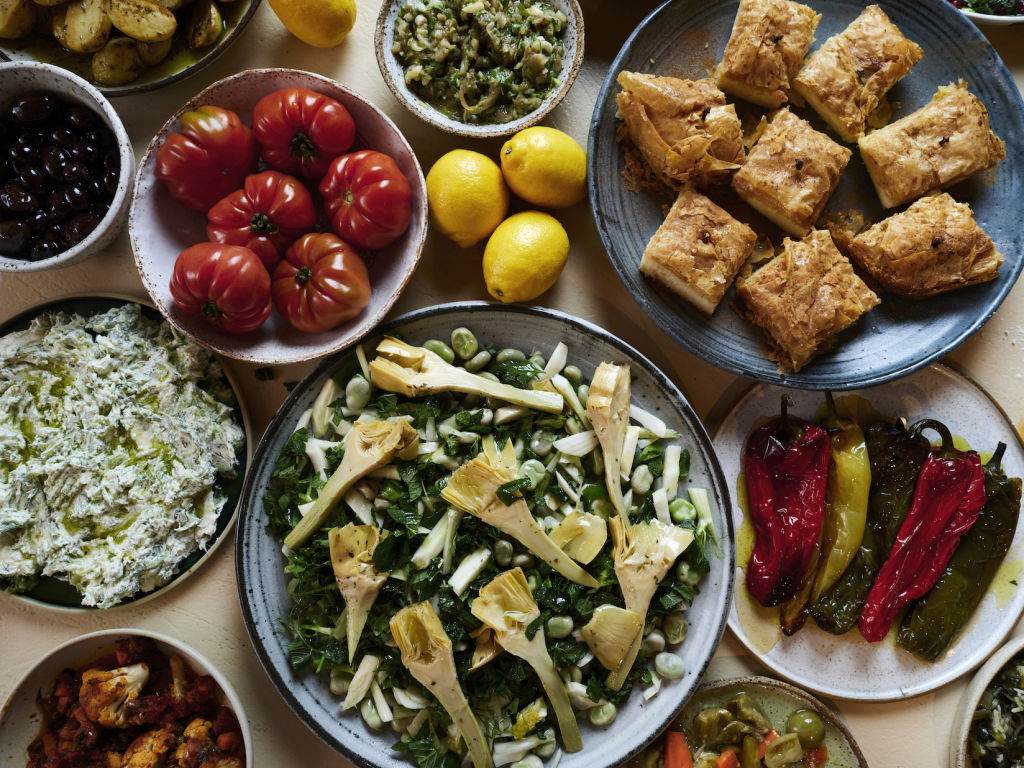
A lifetime of cooking intuitively made getting the recipes on paper the hardest part of the book, Kon says. “This was the first time she’d measured anything. My poor mum, she was like, ‘How stupid can they be? Can’t they just taste and see?’”
Sia believes that your ingredients come second to your intentions, and that they’re at the liberty of our mindsets, too – regardless of a person’s means, beautiful food is available.
“Every horta (wild green) – from the ones you find on the pavement to the ones on an abandoned block – is not only edible but gourmet,” Kon says. “Just sitting there. Migrants are the pioneers of the environmental movements. They were growing their food, living off their land in the ’50s and ’60s.”
In Philoxenia, plump silverbeet dolmades (stuffed vine leaves), smoky melitzanosalata (eggplant dip) and a rainbow of tangy toursi (pickled veggies) transport you to Greece, offering a proverbial seat at the Karapanagiotidis table. It’s an outstretched hand, encouraging you to taste your way into their heritage. To start to understand who they are.
A bright bowl of fricassee (stew) is a fresh mix of broad beans, fennel and artichoke, next to a zesty dill-laden spanakorizo (a pilaf of spinach and rice). There’s a hearty moussaka (casserole) and a glorious dish of papoutsakia, a tasty mess of eggplants that have been stuffed and roasted. There’s a snail of spanakopita (spinach pie) with its viridescent insides, and a sweeter bite via kolokithopita’s (also a pie) pumpkin-filled glory. There’s a spectacular pile of tiganites, pancakes stuffed with feta and topped with honey that light up Kon’s eyes. The book has all that and how to perfect a strong Greek coffee. Each and every recipe is Sia’s, made just as she would make it in her kitchen. Just as they do in Greece.
“When you travel, the first thing people want to share with you is their food,” Kon says. “Let me show you my culture. Philoxenia – come to my home, I’ll make a dozen different dishes for you. It’s not my plate or your plate, there’s only our food. Food opens the door to who we are and invites people to be curious. [In a new country], it’s a level playing field.”
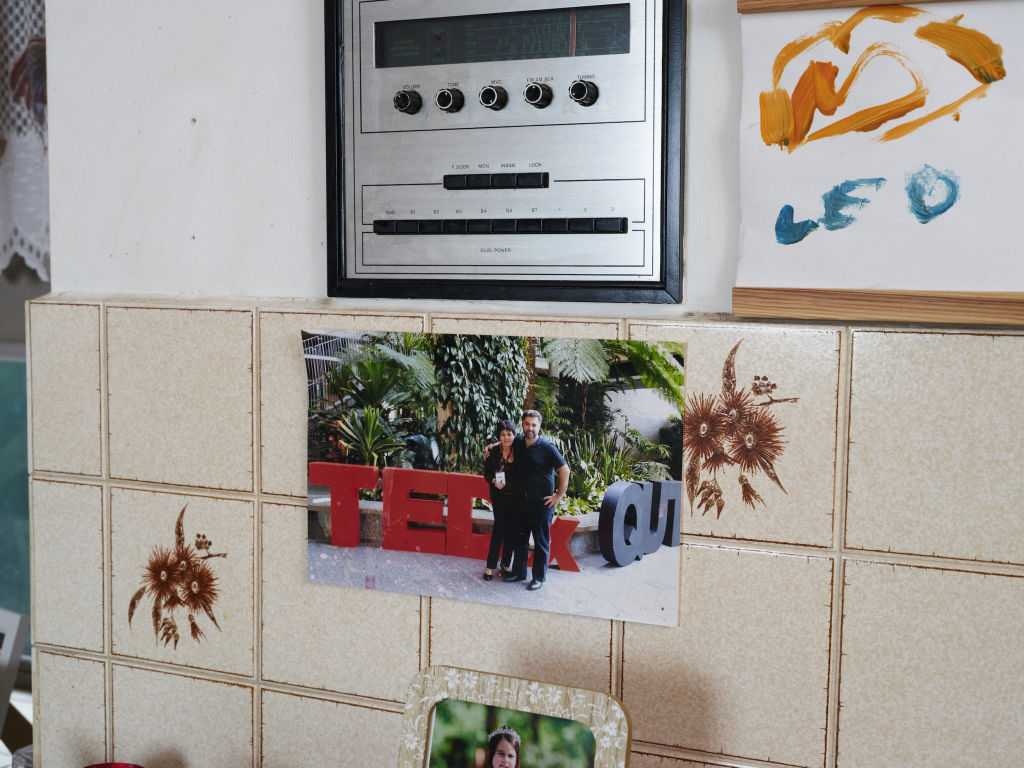
Joining the recipes are essays Kon has written on identity, compassion and family, plus pages of Sia’s golden tips (“cook from a place of curiosity”, “wash produce three or four times”, “waste nothing”, “you can never add enough salt or olive oil”). “I wanted [Philoxenia] to give beautiful layers, which are about: we have a story to tell.”
There’s the story of Kon and Sia, together in the garden and kitchen, then surrounded by family at the table. There’s Sia hand-stretching filo on her island bench, circumnavigating the expanse of pastry while working it slowly, bit by bit. There’s the sweet custardy centre of galaktoboureko (custard baked into pastry), wobbling underneath a crisped-up top of frilly filo.
There are memories of Leo, up early and out late, returning to the stove to love his clan. It’s Sia and her love of strong Greek coffee, Greek soap operas and feeding her family. It’s a story of Leo and Sia in their twenties, arriving in Australia in need of sanctuary, ready to give it a go. Of people from across the globe, sitting down to share beautiful food in a safe space at the ASRC.
Kon’s story is one of connection and compassion. It’s one that makes an impassioned plea for more shared meals, at his table and yours.
This article first appeared in Domain Review, in partnership with Broadsheet.
We recommend
We thought you might like
States
Capital Cities
Capital Cities - Rentals
Popular Areas
Allhomes
More
